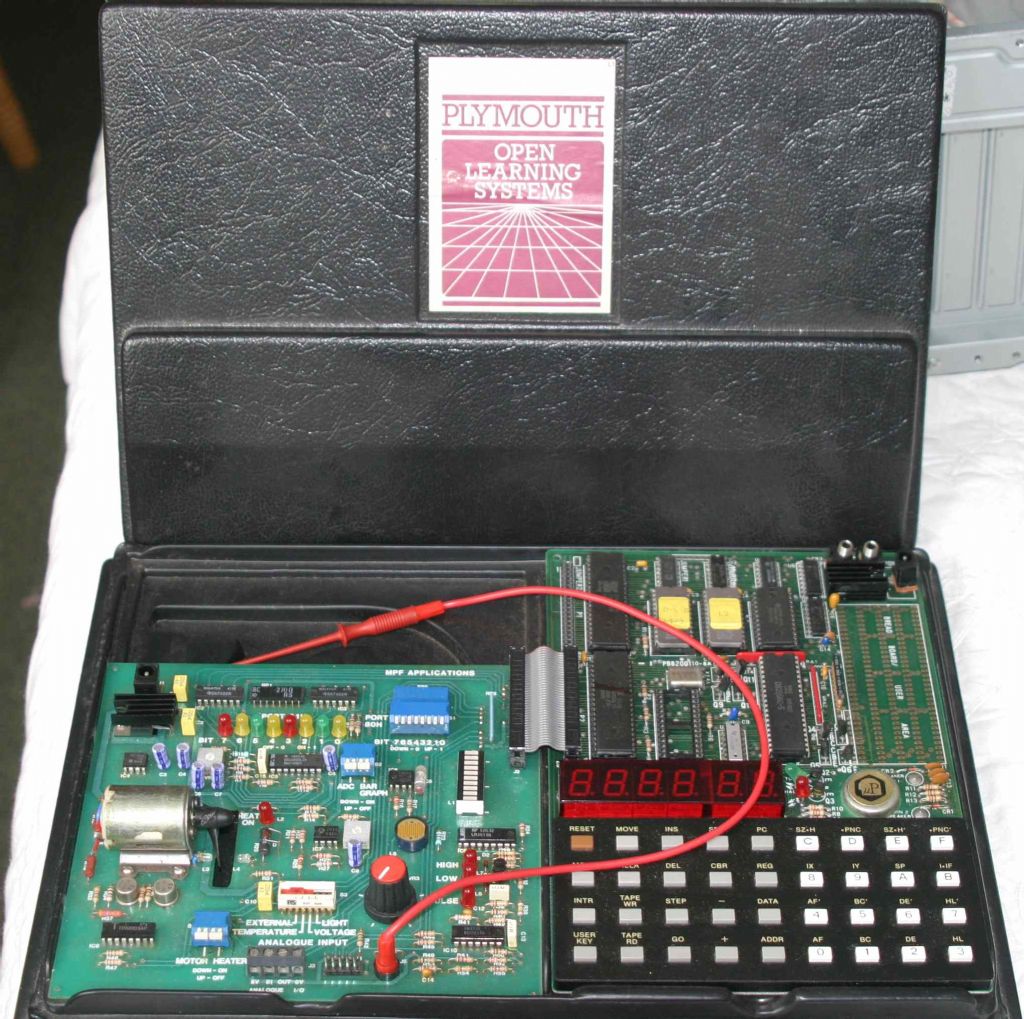It looks as if it dates from the (late) 80s and is obviously a teaching kit. The Intergoogle doesn't throw anything up under my control, so it's probably rather obscure.
The microprocessor is on the RH board, probably the bottom right of the large black ICs next to the crystal. You could get an idea of the date it was made if you look on the LH board which contains various input and output devices like a pot, motor, light sensor etc. The smaller ICs (8-16 pin) and metal cans there will mostly have 4 digit date codes eg "8834", which would indicate "1988 week 34" etc. Most of the date codes will probably fall within a year or so.
Given that this clearly didn't become well known or widely used, I doubt you will find any more info about it than you got with it – is there a manual? You will be limited to assember code, as the chances of running any form of compiler on an external machine are surely zero, even if you had the program (on cassette or giant floppy?). You'll need to know the instructions for the actual processor as well as the manual for the kit itself. If you are very lucky, skilful and persistent, you may be able to drive that motor and vary its speed using the pot. That will be quite a challenge!
Murray
martin perman 1.






